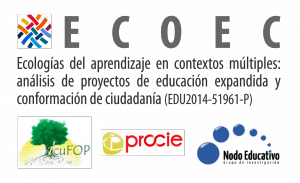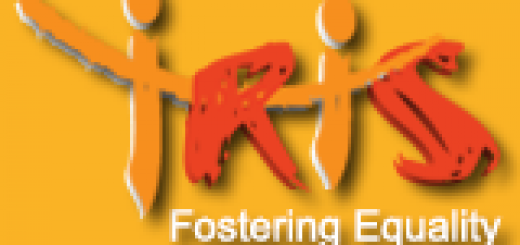ECOEC

Ecologies of learning in multiple contexts : analysis of expanded education projects and building citizenship
Groups:
- University of Granada: Research Group ICUFOP (Curriculum research and teacher training) Consolidated Group HUM-267.
- University of Málaga: Research Group PROCIE (Communication and education group Procie).Consolidated Group Hum-619
- University of Extremadura: Research Group NODO EDUCATIVO.
Fechas: 2015-2018
Financing Entity: Ministry of Economy and Competitiveness. Project I+D of Excellence. Reference: EDU2014-51961-P. Secretary of State for Research, Development and Innovation. General Directorate of Scientific and Technical Research.
Abstract:
The focus appears that much of the learning takes place without explicit instruction, resulting invisible to formal education but are the result of active exploration of learning through practice, interacting with others and participating in a community user (Buckingham, 2008) where “soft” skills (soft skills) are acquired to function effectively in work or daily life. The education system does not seem to be prepared to recognize, evaluate and validate the acquisition of these social skills today understood as rhizomatic learning unseen, ubiquitous, casual, permanent, or generative. The almost unlimited possibilities of this universe of communication open new ways of learning that should be recognized in the curricula.
To address this problem, emerging experiences mediated by institutional and technological devices in constant growth and evolution that lead to the elimination of the formal boundaries of the curriculum and the recognition of the so-called expanded forms of education will be explored. These experiences are representative of the new media ecologies and cultural consumption, present in educational projects, professional, communication, art.
Scenarios where practices invisible learning and expanded education are developed have a hybrid character and placed in multiple contexts (formal education, sociocommunity action, social Web and continuing education) which, coupled with the needs of study in fieldwork from an interpretive perspective, recommends the use of a methodology for case studies with multiple type design, multi or collective cases (Stake, 2005). Cases as “communities of practice” are understood here following Wenguer (2002) and are selected based on criteria applied in new learning ecologies (Cobo and Moravec, Conner, 2009) as: a) the sociocultural heterogeneity of participants , b) the forms of knowledge grid, hypertext, multimedia or interactive, c) the level of citizen involvement and d) for the different procedures for exchange of knowledge (Nonaka and Takeuchi, 1995).
The results will identify and recognize the instrumental skills, cognitive-intellectual, socio-communicative, emotional, invisible digital skills that arise in the field of social networks and cyberspace. And consequently, guide the promotion of synergies between government, non-formal and informal ways of learning to improve the formal curriculum proposals and integrative strategies aimed at knowledge sharing. In short, getting results that enable national and European administrations to address the assessment of “soft” skills and the recognition of the inclusive potential and exchange of learning ecologies.
WEB http://www.proyectoecoec.com






